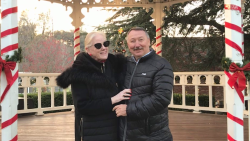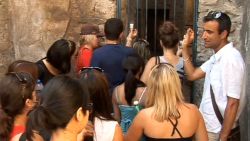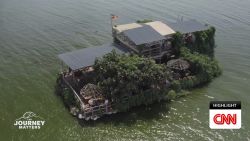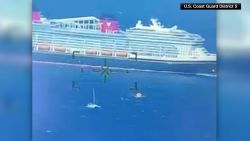With its lochs, castles, mountains, rugged shores and lush isles, the UK’s northernmost country certainly has its share of dramatic landscapes.
Striking scenery combined with a rich history and culture make Scotland a great destination for the intrepid fan of the outdoors or those seeking out some culture in a bustling city (or ancient village).
CNN Travel suggests these places for your holiday.
Edinburgh
Edinburgh is Scotland’s capital and second most populous city. Sometimes referred to as the “Athens of the North” because of the cities’ similar topography and Edinburgh’s role in the Scottish Enlightenment, the city has long been a center for learning. The city “built on seven hills” is brimming with history and culture and can keep you busy for days.
Edinburgh Castle is one of the most popular tourist attractions in Scotland. The formidable fortress is perched atop Castle Rock, a volcanic plug with rocky cliffs, overlooking the city and dominating the skyline.
At the opposite end of the Royal Mile, the Palace of Holyroodhouse is used by the Queen for official engagements while in Scotland and is open to the public when not in use.
If you’re interested in a hike, climb up Arthur’s Seat, a dormant volcano and Holyrood Park’s highest point.
Princes Street is a busy thoroughfare and is great for shopping or just people-watching. Check out the skyline view from the Royal Botanical Gardens.
For medieval architecture, head to St. Giles Cathedral, which was founded around 1124.
Edinburgh Castle: Castlehill, Edinburgh EH1 2NG, United Kingdom; +44 131 225 9846
St. Giles Cathedral: High St, Edinburgh EH1 1RE, United Kingdom, +44 0131 226 0677
Palace of Holyroodhouse: Canongate, Edinburgh EH8 8DX, United Kingdom; +44 303 123 7306
Royal Botanical Gardens: Arboretum Pl, Edinburgh EH3 5NZ, United Kingdom; +44 131 248 2909
Stirling
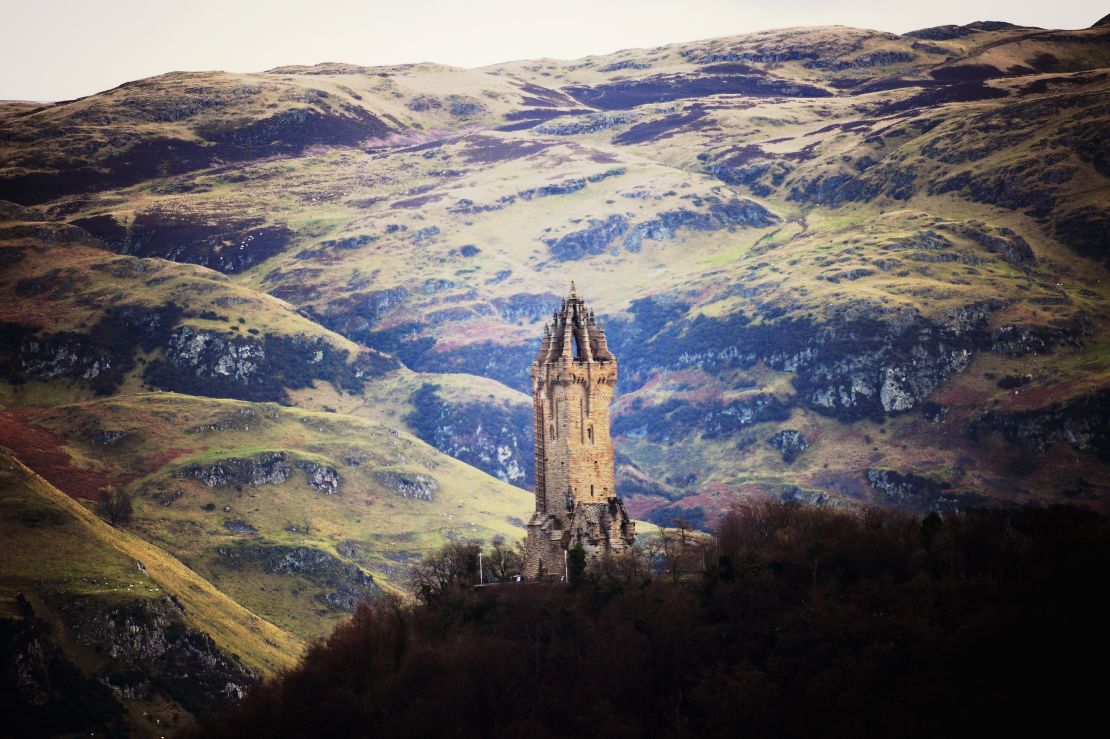
“Braveheart” fans will remember Stirling as the location of William Wallace’s first victory in the First War of Scottish Independence.
In 1297, Andrew Moray and Wallace defeated the English forces of the Earl of Surrey and Hugh de Cressingham at the Battle of Stirling Bridge. The original wooden bridge was destroyed during the battle but is believed to have been just upstream from the 15th-century stone bridge that crosses over the River Forth today.
The National Wallace Monument, a tower built on the Abbey Craig to commemorate Wallace, offers spectacular views of Stirling.
For a different perspective, check out the monument from Stirling Castle atop Castle Hill. The castle dates back to at least the 12th century and is one of Scotland’s most important architecturally.
The National Wallace Monument: Abbey Craig, Hillfoots Road, Stirling FK9 5LF, United Kingdom; +44 1786 472 140
Stirling Castle: Castle Esplanade, Stirling FK8 1EJ, United Kingdom; +44 1786 450 000
Glasgow
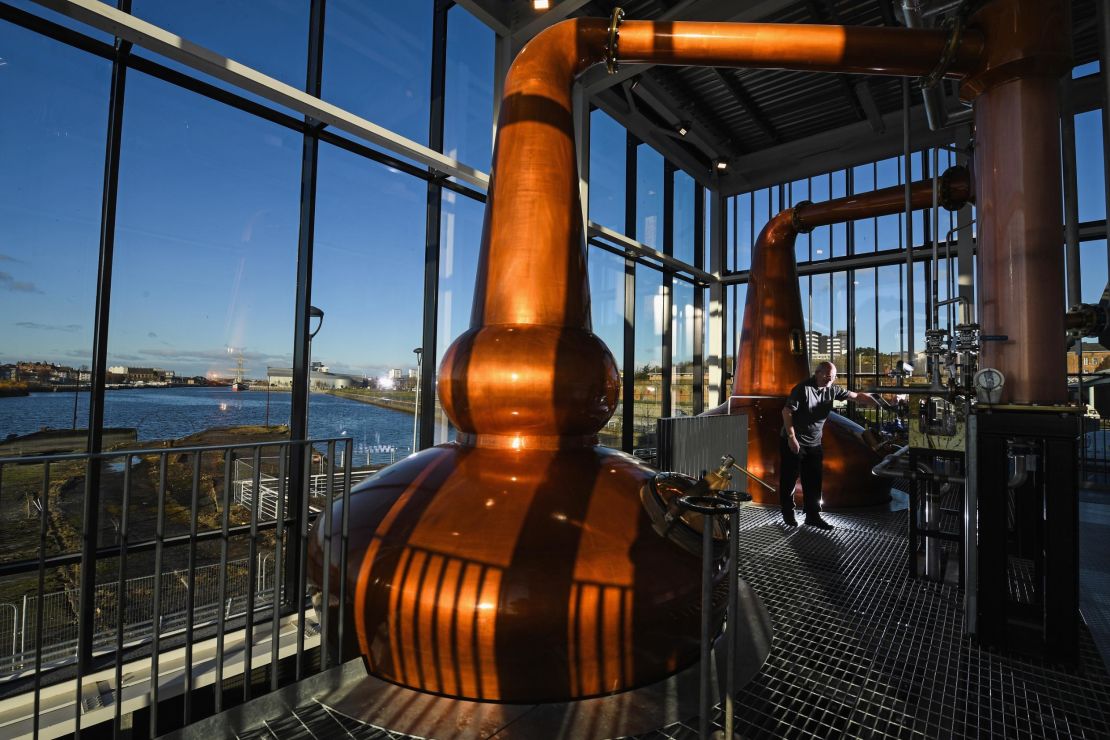
Scotland’s largest city also serves as its cultural hub and has plenty to do in the way of arts and architecture. Take advantage of the free admission to its many museums and galleries.
Kelvingrove Art Gallery & Museum has been a favorite with locals and tourists since opening its doors in 1901. The 22 galleries feature works from Glaswegian Charles Rennie Mackintosh as well as temporary exhibitions.
The nearby Riverside Museum of Transport and Travel’s modern building houses more than 3,000 objects, from trains and trams to bikes and skateboards.
Tour The Mackintosh House, attached to the Hunterian Art Gallery. It is a reconstruction of the first house the artist bought with his wife.
Built before the Reformation in the 12th century, Glasgow Cathedral is a stunning example of Scottish Gothic architecture. In a relatively new addition, the cathedral boast one of the best collections of post-war stained glass windows in the UK.
Relax after your sweep of Glasgow with a tour and whisky tasting at Clydeside Distillery, which opened in 2017 but carries on established traditions.
Kelvingrove Art Gallery & Museum: Argyle St, Glasgow G3 8AG, United Kingdom; +44 141 276 9599
Riverside Museum of Transport and Travel: 100 Pointhouse Road, Glasgow G3 8RS, United Kingdom; +44 141 287 2720
Hunterian Art Gallery: University of, 82 Hillhead St, Glasgow G12 8QQ, United Kingdom; +44 141 330 4221
Glasgow Cathedral: Castle St, Glasgow G4 0QZ, United Kingdom; +44 141 552 8198
The Clydeside Distillery: The Old Pump House, Queen’s Dock, 100 Stobcross Road, Glasgow G3 8QQ, United Kingdom; +44 141 212 1401
Loch Lomond
For some nature therapy, head for the hills at Loch Lomond & The Trossachs National Park. You can climb, kayak or cycle your way around the park, or enjoy a day out on the loch on a cruise or water bus.
Loch Lomond & The Trossachs National Park: info@lochlomond-trossachs.org or +44 1389 722 600
The islands
Scotland’s more than 790 islands are divided up into four main groups: Shetland, Orkney, Inner Hebrides and Outer Hebrides. Here’s a look at a few you might want to explore.
– Isle of Islay: The southernmost island in the Inner Hebrides is often overlooked. The “Queen of the Hebrides” is not only gorgeous, it is home to eight distilleries, including Laphroaig and Bowmore.
– Isle of Skye: The Inner Hebrides’ northernmost island is known for its mountainous terrain and can be an excellent hiking destination. The island has become increasingly popular in recent years. Avoid large crowds by visiting in fall or spring.
– Papa Westray: A small island in the Orkney archipelago in Scotland’s Northern Isles, Westray has only 90 inhabitants, beautiful beaches and some of the oldest-known European dwellings – dating from 3,800 BCE. The island can be reached via a two-minute plane ride out of Kirkwall on the Orkney mainland.
– Shetland Islands: The subarctic archipelago is the most northerly part of the UK and can be reached by plane or ferry from the mainland. Of the more than 100 islands, only 15 are inhabited. The archipelago is known for its prehistoric sites, rugged landscapes, wildlife and pristine beaches.
Closer to Norway than mainland Scotland, the Northern Lights can be seen from here in the winter.
When you use affiliate links on this page, CNN may receive revenue. CNN is not responsible for the goods or services provided through such links.



